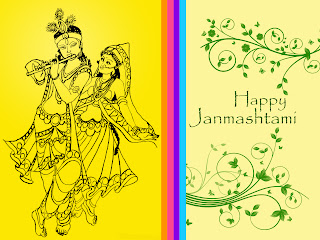Thursday, July 26, 2012
Wednesday, July 25, 2012
Nag Panchami
Hinduism as a religion is many-sided yet bound by a common
search for Truth and to Hindus it means a way of life and a fellowship of
faiths. With the advent of the Aryans, it originated as a simple form of
worship of the forces of Nature, drawing in its system action in social
organisations, local cults, deities’ diverse beliefs and modes of worship.
Nag-Panchami is an important all-India festival and is celebrated on the fifth day of the moonlit-fortnight in the month of Shravan (July /August). This is the time when serpents invariably come out of their holes that get inundated with rain-water to seek shelter in gardens and many times in houses. As such they pose a great danger to man.
May be therefore, snakes are worshiped on this day. Right from the times when mankind started acquiring some sort of culture, Sun and Snake have been invoked with prayers and ritual worship in most of the countries. In India even before the Vedic times, the tradition of snake-worship was in vogue.
Nag-Panchami is an important all-India festival and is celebrated on the fifth day of the moonlit-fortnight in the month of Shravan (July /August). This is the time when serpents invariably come out of their holes that get inundated with rain-water to seek shelter in gardens and many times in houses. As such they pose a great danger to man.
May be therefore, snakes are worshiped on this day. Right from the times when mankind started acquiring some sort of culture, Sun and Snake have been invoked with prayers and ritual worship in most of the countries. In India even before the Vedic times, the tradition of snake-worship was in vogue.

Love
Love is an emotion
of a strong affection
and personal attachment. Love is also said to be a virtue
representing all of human kindness, compassion, and affection —"the unselfish loyal and
benevolent concern for the good of another". Love may describe
compassionate and affectionate actions towards other humans, one's self or
animals.
In English, love refers to a variety of different feelings, states, and
attitudes, ranging from pleasure ("I loved that meal") to interpersonal attraction ("I love my
partner"). "Love" may refer specifically to the passionate
desire and intimacy of romantic love, to the sexual love of eros,
to the emotional closeness of familial
love, to the platonic love that defines friendship,
or to the profound oneness or devotion of religious love, or to a concept of love that encompasses all of those
feelings. This diversity of uses and meanings, combined with the complexity of
the feelings involved, makes love unusually difficult to consistently define,
compared to other emotional states.
Love in its various forms acts as a major facilitator of interpersonal relationships and, owing to
its central psychological importance, is one of the most common themes in the creative arts.
Love may be understood as part of the survival instinct, a function to keep
human beings together against menaces and to facilitate the continuation of the
species.
Krishna Janmashtami
Radhe Radhe japo
chale aayenge beehari
Aayenge bihari chale aayenge beehari
Radhe Radhe
Aayenge bihari chale aayenge beehari
Radhe Radhe
This is one of the famous songs that people sing on the occasion of Janmashtami, the birth anniversary of Lord Krishna the eighth avatar (Incarnation) of Lord Vishnu. This religious festival is celebrated all over India in the month of August/September on the ashtami of Krishna Paksh or the eighth day in the month of Bhadon according to the Hindu calendar with great devotion and zeal. Janmashtami is also known as Gokulashtami, Krishnasthami, Srijayanti.
The Janmashtami of Mathura and Vrindavan, the places where Lord Krishna had spent his childhood, are famous all over the world. Devotees from across the world come to these pious places to celebrate Janmasthami. On this auspicious occasion, temples and homes are beautifully decorated and illuminated. Night long prayers are offered and religious hymns are sung in temples. The priests chant holy mantras and bath the idol with Panchamrit which comprises of Gangajal (water from the holy Ganges River), milk, ghee (clarified butter), curd, and honey pouring all these from a conch shell. After this bath the idol of the infant Krishna (also known as Balmukund) is placed in a cradle. Devotional songs and dances mark the celebration of this festive occasion all over Northern India.
The temples especially in Vrindavan witness an extravagant and colourful celebration on this occasion. Raslila is performed to recreate incidents from the life of Krishna and to commemorate his love for Radha.
Subscribe to:
Comments (Atom)
-
Guru Nanak Gurpurab also known as Guru Nanak Dev Ji's Prakash Utsav , marks the birth anniversary of the first Sikh Guru , Guru Nan...
-
Ram Navami also known as Sri Rama Navami is a Hindu festival , celebrating the birth of Lord Rama to King Dasharatha and Queen K...



















.jpg)
.jpg)
.jpg)

































